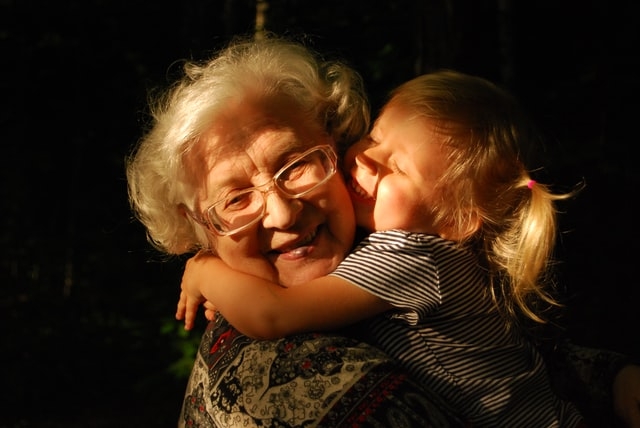22 Mar What Are My Rights to See My Grandchild?

As a grandparent myself, I can well understand the emotional distress that may be caused where parents refuse to allow their child to spend time with a grandparent.
This issue arose recently in the case of Sarti & Sarti, heard on Appeal in the Family Court of Australia in December 2020.
In that case a “belligerent” grandfather, dying of liver cancer with only three months to live, made an Application to the Family Court for urgent Orders to spend time with his five-year-old grandson. The parents of the child, who were separated, both opposed the grandfather’s Application. The father and grandfather had not gotten on for many years. The mother, who initially supported the grandfather, changed her position after an incident with the grandfather at the child’s pre-school. She said she was left “very rattled” and “threatened, anxious and upset” after the incident.
The Court heard the case urgently due to the grandfather’s condition. The grandfather was eventually successful in the Court obtaining Orders that he spend time with his grandson, once per month, for three hours duration, which was however significantly less than what the grandfather had sought.
The Court must consider many factors in deciding parenting arrangements including grandparents arrangements in family law cases. One of the most important factors in this case as the pre-existing strong relationship between the child and his grandfather. The Court found that if it was not for this pre-existing relationship the unified opposition of the child’s parents would have been given much greater weight.
The Judge quoted previous cases stating “Where parents jointly (or if a sole parent, solely) have a strong view in relation to the parenting of their children, Courts should be cautious about interfering with that exercise of parental responsibility. In general, parents best know their own children and the dynamics of the family in which the children live. Australian Courts exercising jurisdiction under the Family Law Act have a statutory obligation to resolve conflicts relating to the parenting of children. This does not man that Courts take over the role of parents”.
Under the Family Law Act a grandparent can make an Application for parenting Orders, including an Order that the child live with them, as can any other person who is concerned about the care, welfare and development of a child.
It is often the case that a grandparent may be involved in family law proceedings, particularly in circumstances where one or both of the child’s parents are unable to care for a child.
The Court recognises that children need to feel loved and often enjoy the reciprocal love from their grandparents. It also gives the child an extra form of protection if there are issues with the child’s own parents’ capacities to appropriately parent them.
Children can experience upset, grief and distress if they lose a relationship with a grandparent or family member that they were close to, because of acrimony between their parents and the grandparent.
In considering a Parenting Order, the Court must give paramount consideration to the best interests of the child.
The Family Law Act sets out a list of factors for consideration including:
- the views of the child;
- the age, maturity and background the child;
- what the existing arrangements have been for the child before and after their parent’s separation;
- is it desirable to maintain those arrangements? Or is it desirable to change the arrangements?
- each of the parent’s (and the grandparent’s) capacity to care for the child; capacity extending to their physical capacity; their financial capacity and their emotional capacity; Other issues that affect their capacity include addiction to alcohol or drugs or mental health concerns;
- are there any apprehended violence orders in place?
- will children be exposed to any form of family violence? Are there any family violence Orders in place?
- a need for the child to maintain a connection to their culture;
- any other factor circumstances relevant.
In the case of Sarti & Sarti the Appeal Judge needed to consider balancing on the one hand, the fact that time with the grandfather could potentially impact upon and cause stress to the child’s parents and thus impact upon their future co-parenting relationship, and on the other hand, the benefits of the child having a relationship with the grandfather.
The primary Judge commented that “from the child’s perspective the relationship was uncomplicated and happy. It is likely that if the child is given the opportunity to spend time with his grandfather he would again enjoy his grandfather’s company.”
In weighing up all of the factors and evidence the Court decided that it was in the best interests of the child to resume his relationship with his grandfather. The Court took into consideration the affect of the stress that it would cause the family if the child was to spend time with the grandparents and weighed that against the benefit to the child of having a relationship with his grandfather.
If you are concerned about any parenting issues please do not hesitate to call the Family Law team at Solari & Stock for expert advice. Contact 8525 2700 to make an appointment over the phone or click here to request an appointment via our website.
Article written by Riccarda Stock.
Photo by Ekaterina Shakharova on Unsplash